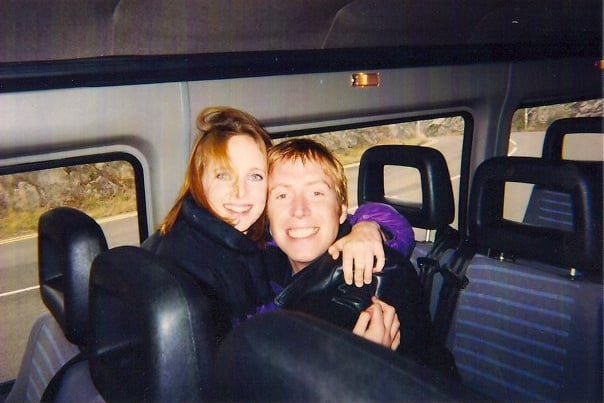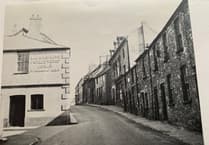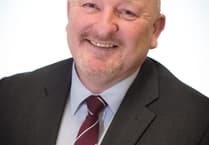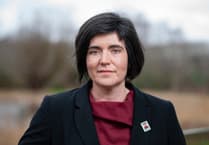WHEN Jenny Evans was invited back to a party by a famous figure in the late 1990s, the teenager was riding the crest of a wave. She had just appeared in the cult classic ‘Twin Town.’ Her career was taking off, and the future looked bright.
One evening, shortly after the film was released , she attended a reunion event in London with the rest of the Twin Town cast and crew to celebrate.
Later that evening, she accompanied another woman to the house of a well-known celebrity who was unconnected to the film but who was nevertheless a high-profile figure.
That night, the celebrations would come to a premature end, and Jenny’s future in the film industry would begin to look a lot less appealing.
After the other female suddenly departed, Jenny was left alone in the house with the man and his male friend. She asked them to call her a taxi. They refused and instead, both sexually assaulted her.
It changed everything.
The film and entertainment industry has been a hunting ground for sexual predators long before Harvey Weinstein became a household name.
People just never expect it to happen to them. And when it does, there are no words…..
In the aftermath of the attack, the pair whom Jenny refers to in her book as The Famous Man and The Wolf, called a taxi and let her leave.
As she sat in the back of the cab, broken and bruised, she tried to make sense of what had happened. Yet what sense can be made of the sadistic, the depraved, and the nonsensical?
The taxi driver, a kind soul named Ken, could visibly see Jenny had been assaulted in some shape or form. He volunteered to take her to a police station.
Tired and confused, Jenny said she just needed to go home and sleep.
Like so many other victims of sexual assault, she was overwhelmed by emotions. She just wanted to block out the world and hide away.
Nearly 30 years on, the unsure and inexperienced teenager is now a confident and knowledgeable woman. She describes the brutal sexual assault for what it was - “Assault by penetration.”
And, “So violent I couldn’t breathe.”
At the time, Jenny never reported the attack.
The bold, independent, and resilient people we all like to think of ourselves as can collapse like a house of cards when faced with such unexpected savagery and humiliation.
Jenny was no different.
She confessed that she withdrew into herself and told her agent she didn’t want to appear in any more films. Her confidence was gone.
Jenny became depressed, put on weight, dressed drably, and made an enemy of the body she felt was responsible for attracting the abuse and the abusers.
In the late 1990s, there was no # MeToo campaign to help her. There was just a law system that pretended it was never the victim’s fault, but which, in reality, would harshly ridicule and undermine a teenage girl from Wales who voluntarily visited a famous man’s house and then accused them of sexual assault.
The cards were stacked against her, and she felt she had no hand to play.

This all changed with the death of her brother Will in 2001.
Will was 24 and had died in a house fire.
Will had always been an inspiration to Jenny, and his death was a wake-up call.
She chose to honour her brother’s memory by refusing to let the actions of weak and corrupt people define who she was.
Although she no longer wanted to act, she felt she could make a good teacher and always wanted to try her hand at writing, so she began studying for a degree at the Royal Central School of Speech and Drama.
Her life had purpose again.
Yet one day, shortly before graduation, she read an article in the Evening Standard.
It was about her attacker - The Famous Man. Only this time, he was accused of raping someone else.
It had never occurred to Jenny that the man was a serial offender. The thought of another woman being hurt was unbearable. She went straight to the police and told them her story.
To her horror, four days later, it appeared in The Sun. She wasn’t named, but the account was still painfully personal. She had told the police the most intimate details in confidence, but now the most harrowing details of her ordeal were national fodder.
She felt frightened, humiliated, and violated all over again.
Who had leaked the details?
The CPS would later drop all charges against The Famous Man, citing a lack of evidence.
Although they wouldn’t name her, the News of the World would also devote a double-page spread to Jenny’s story and her meeting with the police. They implied she had fabricated the whole thing.
It was Jenny’s first taste of how the establishment can quickly close ranks when threatened. How they can batter an individual into submission, or silence a “silly girl” who dares speak out.
She had told the papers nothing, yet they knew everything. How could this be?
Jenny felt battered, but she was far from broken, and saying to herself, “This is not ok!” She launched the sort of counterattack that would have made her brother smile.
To defeat the enemy, you must know the enemy, and so Jenny retrained as an investigative journalist.
She graduated from her course, and when not busy developing TV documentaries, she worked on an ad-hoc basis alongside reporter Nick Davies.
When Davies wrote a 2009 article in The Guardian, headlined, “Murdoch papers paid £1m to gag phone-hacking victims,” it was an eureka moment for Jenny.
She finally realised how the tabloids stole secrets.
Davies engaged her help on further investigations into the phone hacking scandal, and Jenny went further down the rabbit hole.
Jenny explained, “The more I found out about the tabloids, the more fearful I became, because of their reach, their power, their corruption, the ruthlessness, the depth of their misogyny.”
The Famous Man would never face justice, but Jenny would later receive a letter from the Met Police in 2014, apologising for “the passing of her information to the media.”
The settlement was considerable.
She used part of the payout to pay for IVF treatment and part to retrain as a lawyer.
Her son Leo is now six, and Jenny is a fully qualified lawyer and looking for her first job.
She has also found the time somewhere amongst the chaos to write a book about it all and told the Chronicle, “I wrote the book for my younger self. It’s the sort of book I needed to read when I was a teenager. Nearly all the women I know have been victims of some sort of sexual violence, and it’s unacceptable.
“For a long time, I didn’t want to talk about it and tried to internalise and normalise it, but if you do that, they’ve won and will keep on winning.”
Jenny added, “I just hope that any young women out there who are feeling pretty low and feel like the stuffing has been ripped out of them will pick up a copy of the book and feel a little less alone and a little less rubbish.
“In the end, it’s ok to break because you can always rebuild.”
“Don’t Let It Break You: A Memoir About Saving Yourself” is available now
Jenny Evans will be at Abergavenny’s Bookish on Saturday, August 9, for a book signing from 1 pm onwards.





Comments
This article has no comments yet. Be the first to leave a comment.